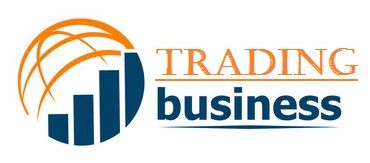Sheila Walkington, Certified Financial Planner, worked in this capacity in Vancouver before becoming a financial coach in 2004. She is the co-founder of Money Coaches Canada, a network of 21 coaches across Canada.
Trevor Van Nest, Certified Financial Planner, has been a Financial Coach for four years. He is the chairman of two offices: York Region Money Coaches and Niagara Region Money Coaches.
Q: What exactly is a financial coach?
Trevor Van Nest: Someone who is supposed to provide objective and unbiased support and advice without selling products or having any relationship with another financial institution. Customer education is the priority.
Sheila Walkington: A financial coach combines financial planning and coaching techniques to help people see their goals and values more clearly, identify bottlenecks and difficulties so that they spend their money more wisely, manage their finances better and be more proactive with their money. A key component is providing structure, accountability and motivation to help clients achieve their short, medium and long term goals. We are fee-based advisors and do not sell financial, investment or insurance products.
Q: What prompted you to take this path?
TVN: I worked at American Express as vice president of marketing. I launched mutual funds, GICs, all kinds of debit and credit cards, and bond products. I was familiar with the industry and its shortcomings. It all starts with our record level of family debt and the challenges we face in managing it. I myself have seen people spend a lot more than they earn and the impact on their personal bottom line is just devastating.
Very few people help you eliminate debt because debt is a product sold with very high profit margins. And it’s not just the banks that sell it, but all the big retailers as well. So I saw here an opportunity to educate people about their personal finances, which has always been a passion for me.
Most financial planners don’t touch on budgeting or even debt elimination. I’ve heard of situations where counselors never even ask their clients about their debts or ask if they have an open line of credit.
SW: When I was a consultant, people came to me to give them advice on their retirement and investments. But they were also totally in debt, so they didn’t manage their finances very well on a daily basis. I saw a huge need to help people get their budgets back on track so that they can save to meet their short term goals and prepare for the future.
But the financial planner that I was was getting paid by commission. The only way to get paid was to sell investments or insurance. But on the client side, the biggest problem I saw was paying off their debts, and that didn’t involve selling insurance or investments. So there is a gap between how traditional advisors are paid and what some clients want. That’s why I left to become a financial coach.
Q: Why not just give advice on fees, and sell products?
TVN: There are a lot of people who claim to be paid purely on a fee basis but actually sell a product and get paid a commission on the sly. Financial coaches move beyond the stage of fee-based planners. I am an expert in money management. I help people put together meticulous budgets that work well over time. I have all these conversations with them about how much they spend on restaurants, what their next trip will be and how much they contribute to an RRSP. I also help people understand the tradeoffs they make. Some of them, for example, are

